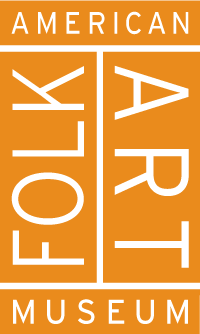Join us online for a new edition of the Anne Hill Blanchard Uncommon Artists Lecture. Talks will explore new research on self-taught art across time and place.
This year’s program brings historians and curators together to explore heritage as a tool for innovation and resistance. The lecture will highlight folk and self-taught practitioners who are both guardians and pioneers, combining past and present times, Western and non-Western aesthetics, breaking with stereotypes and conventions.
Speakers include art historian and activist Tímea Junghaus on new approaches to Ceija Stojka’s visual language, historian Philip Deloria on Mary Sully’s Indigenous modernism, and historian Jason Young on David Drake’s poetic ceramic practice in connection with the exhibition Hear Me Now: The Black Potters of Old Edgefield, South Carolina (The Metropolitan Museum of Art, Sept 9, 2022 – Feb 5, 2023).
The Anne Hill Blanchard Uncommon Artists Lecture Series highlights new and important contributions to the field of folk and self-taught art. This annual series honors the late Anne Hill Blanchard, an inspiring and passionate leader in the field and a devoted supporter of the American Folk Art Museum.
The 2023 Anne Hill Blanchard Uncommon Artists Lecture will be held online via Zoom.
Space is limited; advance registration is required. Please consider making a donation when you register to support ongoing virtual programming.
Instructions for joining with a Zoom link and password will be provided by email upon registration confirmation under “Additional Information.” Closed captioning will be provided in English. For questions or to request accessibility accommodations, please email publicprograms@folkartmuseum.org.
SCHEDULE
1:00 p.m. ET Welcome & Opening Remarks
1:15 p.m. ET Yason Young | David Drake
1:45 p.m. ET Philip Deloria | Mary Sully
2:15 p.m. ET Tímea Junghaus | Ceija Stojka
2.45 p.m. ET Q&A
BIOGRAPHIES
Jason R. Young is an Associate Professor of History at the University of Michigan. He is the author of Rituals of Resistance: African Atlantic Religion in Kongo and the Lowcountry Region of Georgia and South Carolina in the Era of Slavery and co-editor, with Edward J. Blum, of The Souls of W.E.B. Du Bois: New Essays and Reflections. He is a Co-Curator of a traveling exhibition, Hear Me Now: The Black Potters of Old Edgefield, South Carolina, that opened at the MET in September 2022. Young has published articles in The Journal of African American History, The Journal of Africana Religions, and The Journal of Southern Religion, among others.
Philip J. Deloria (Dakota descent) is the Leverett Saltonstall Professor of History at Harvard University, where his research and teaching focus on the social, cultural and political histories of the relations among American Indian peoples and the United States. He is the author of several books, including Playing Indian (Yale University Press, 1998), Indians in Unexpected Places (University Press of Kansas, 2004), American Studies: A User’s Guide (University of California Press, 2017), with Alexander Olson, and Becoming Mary Sully: Toward an American Indian Abstract (University of Washington Press, 2019), as well as two co-edited books and numerous articles and chapters. Deloria received the Ph.D. in American Studies from Yale University in 1994, taught at the University of Colorado, and then, from 2001 to 2017, at the University of Michigan, before joining the faculty at Harvard in January 2018. Deloria is a trustee of the Smithsonian Institution’s National Museum of the American Indian. He is former president of the American Studies Association and the Organization of American Historians, an elected member of the American Philosophical Society and the American Academy of Arts and Sciences, and the recipient of numerous prizes and recognitions.
Tímea Junghaus is an art historian and contemporary art curator. She started in the position of Executive Director of the European Roma Institute for Arts and Culture in September 2017. Previously, Junghaus was Research Fellow of the Working Group for Critical Theories at the Institute for Art History at the Hungarian Academy of Sciences (2010-2017). She has researched and published extensively on the conjunctions of modern and contemporary art with critical theory, with particular reference to issues of cultural difference, colonialism, and minority representation. She is completing her Ph.D. studies in Cultural Theory at the Eötvös Lóránd University, Budapest.
In recognition of her curatorial activities, Junghaus received the Kairos – European Cultural Price from the Alfred Toepfer Stiftung F.V.S., in 2008. Her curatorial works include the Roma component of the Hidden Holocaust- exhibition in the Budapest Kunsthalle (2004), Paradise Lost – the First Roma Pavilion at the 52nd Venice Contemporary Art Biennale (2007), the Archive and Scholarly Conference on Roma Hiphop (2010), The Romani Elders and the Public Intervention for the Unfinished Memorial to the Sinti and Roma Murdered Under the National Socialist Regime in the frame of the 7th Berlin Biennale (2012), the (Re-)Conceptualizing Roma Resistance – exhibition and education program in Hellerau, Dresden (2015) and the Goethe Institute, Prague (2016). She is the curator of the Visual Arts Section for RomArchive – Digital Archive of the Roma, funded by Kulturstiftung des Bundes (2015-2018).
Junghaus was the founding director of Gallery8 – Roma Contemporary Art Space (www.gallery8.org) in Budapest (2013-2017), the winner of the 2014 Catalyst Contemporary Art Award (of Tranzit Hungary) and the 2014 Otto Pankok Prize awarded by the For Roma Foundation of German writer and Literary Nobel Laureate, Günter Grass.
Support for 2023 public programs is provided by the National Endowment for the Humanities (NEH).
Images:
Left: David Drake, Storage jar (detail), 1858, Alkaline-glazed stoneware. The Metropolitan Museum of Art. Purchase: Ronald S. Kane Bequest, in memory of Berry B. Tracy, 2020.
Center: Mary Sully, Cornelia Otis Skinner, ca. 1935, colored pencil on paper.
Right: Ceija Stojka, Untitled, 2009, acrylic on cardboard.
1:00 pm–3:00 pm
Online; free with registration
